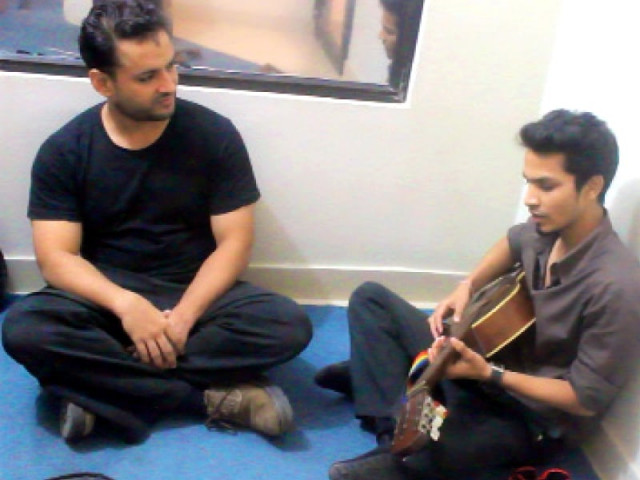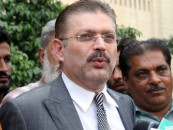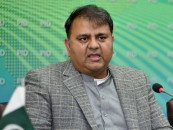Road to recovery: Healing disorders through the sound of music
A relatively new concept in Pakistan, sound therapy is centered on the basic principle of ‘frequency balance’.

Faisal Gill (left) treats patients with disorders through the ‘power of sounds’ at his studio at Ziauddin College for Speech and Language Therapy in Karachi. PHOTO: EXPRESS
Due to his stuttering disorder, Ajay Chauhan can barely string a sentence together. Seated in his sound therapist Faisal Gill’s tiny studio at the Ziauddin College for Speech and Language Therapy in Karachi, he appears visibly agitated as words fail him.
But as soon as Gill starts strumming the guitar, Chauhan seems to find a mental harmony with the chords. Words start flowing effortlessly as Chauhan now reads and then raps the same passage, with music in the background.
“This is the power of sound - it can alter your mood, behaviour, concentration, just by altering a few frequencies,” explained Gill who has been treating patients with different behavioural, physical, mental and speech disorders through sound therapy for nearly four years.
A relatively new concept in Pakistan, sound therapy is centered on the basic principle of ‘frequency balance’. It means that the human body is made up of different energy frequencies, which can be balanced and altered by generating different sound frequencies. This allows patients to focus, communicate and think better.

For example, the frequencies generated by certain music instruments can have a calming effect on patients suffering from Attention Deficit Hyperactivity Disorder (ADHD). Similarly, playing a wind instrument such as a flute is great exercise for the muscles of a patient with speech and hearing impairment. It opens up their vocal lymph nodes and allows them to generate sound. This not only helps patients address their disabilities but also empowers them.
Eight-year-old Taha’s mother states that she had been looking for sound therapy options in Pakistan for a long time and then she met Gill. She claims that her son Taha, who suffers from sensory disorders and delayed speech, has shown clear improvement in sequencing and organising his thoughts due to these sessions.
Customised treatment
“The methods Faisal use resonate differently with different people. My son is interested in trucks and he has managed to write a song about it with Faisal,” she said.
Every session lasts for an hour and costs Rs1,400. Patients’ sessions are tailored according to their specific needs which are assessed by Gill through an initial orientation session. They can then choose to play from a wide variety of instruments, write songs, practice speech with music in the background or just simply sit and absorb the music played by Gill himself.

According to the sound therapist, changes in patients become noticeable after an average of three sessions. He, however, admitted that getting families to open up to unconventional methods like using music for treatment still poses a challenge at times.
“I hold counseling sessions with parents and explain the concept to them. But the real breakthrough happens when they witness the transformation in their child’s speech, mood or behaviour with their own eyes,” he states with a smile.
He narrated a recent incident where he was even criticised for using something ‘haram’, such as music, for treatment during a lecture. “Actions are judged by intentions. That is all I had to say,” he said.
Gill explains that even certain medical professionals have a very rigid approach towards the practice. “It’s a mix of art and science. There needs to be a lot of flexibility for it to work.”
He also attributes special credit to Amina Siddiqi, the principal for Ziauddin College of Speech and Language Therapy, for understanding the concept and allowing him the freedom to practice it his own way. A music enthusiast, Gill claims that his vocation was fuelled by his passion for the craft along with a desire to help others, pushing him to abandon his job as finance professional and pursue several diplomas in psychology, physics and fundamental of acoustics.
Since the practice is lacking in awareness and professionals, Gill has been training young people who are passionate about music to channel their craft towards helping others. “It changes these young people too, when they channel their music towards positive change instead of commercialism. It’s a win-win situation for everyone.”
Published in The Express Tribune, August 17th, 2013.



















COMMENTS
Comments are moderated and generally will be posted if they are on-topic and not abusive.
For more information, please see our Comments FAQ